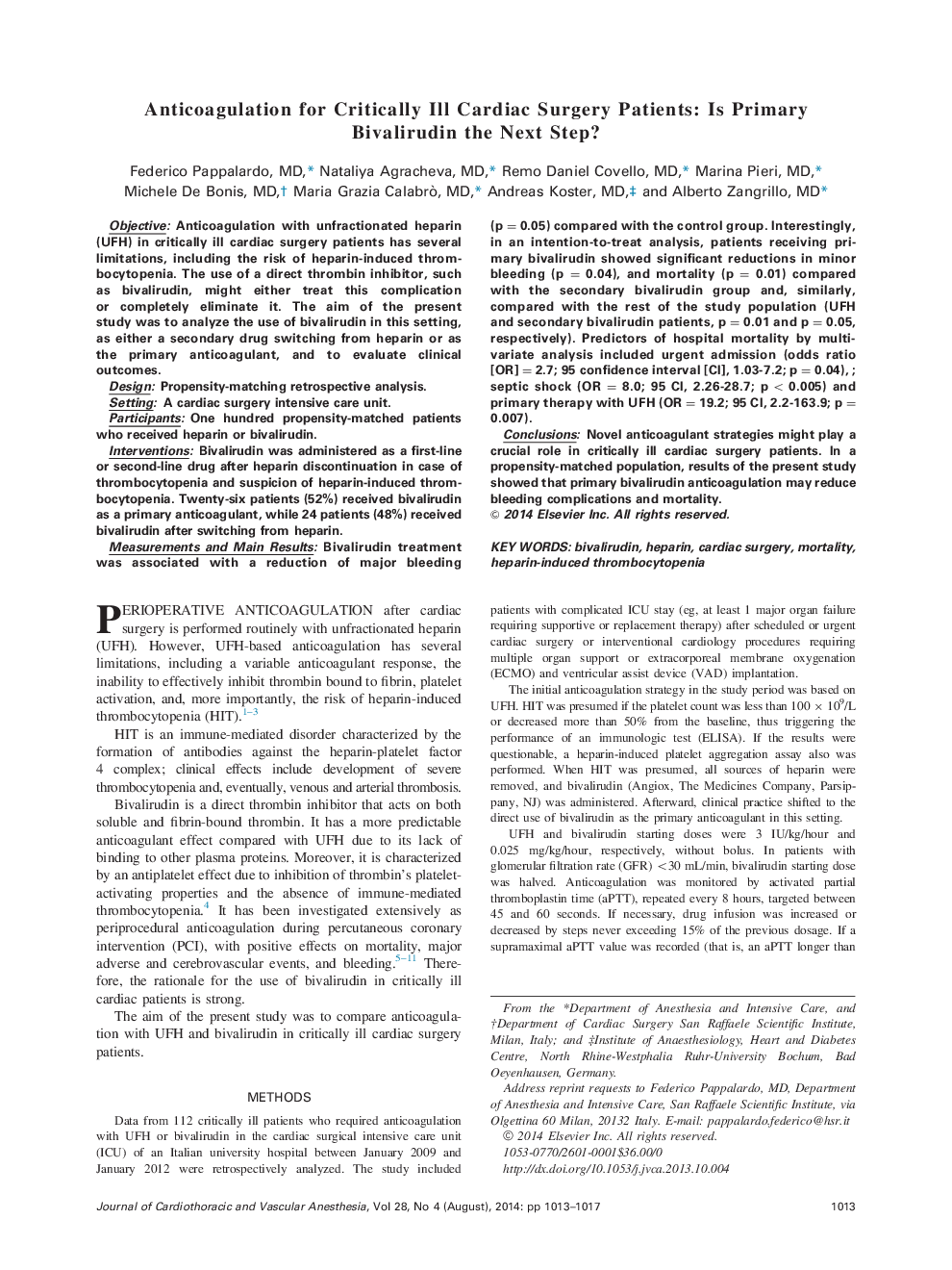| کد مقاله | کد نشریه | سال انتشار | مقاله انگلیسی | نسخه تمام متن |
|---|---|---|---|---|
| 2759428 | 1150154 | 2014 | 5 صفحه PDF | دانلود رایگان |
ObjectiveAnticoagulation with unfractionated heparin (UFH) in critically ill cardiac surgery patients has several limitations, including the risk of heparin-induced thrombocytopenia. The use of a direct thrombin inhibitor, such as bivalirudin, might either treat this complication or completely eliminate it. The aim of the present study was to analyze the use of bivalirudin in this setting, as either a secondary drug switching from heparin or as the primary anticoagulant, and to evaluate clinical outcomes.DesignPropensity-matching retrospective analysis.SettingA cardiac surgery intensive care unit.ParticipantsOne hundred propensity-matched patients who received heparin or bivalirudin.InterventionsBivalirudin was administered as a first-line or second-line drug after heparin discontinuation in case of thrombocytopenia and suspicion of heparin-induced thrombocytopenia. Twenty-six patients (52%) received bivalirudin as a primary anticoagulant, while 24 patients (48%) received bivalirudin after switching from heparin.Measurements and Main ResultsBivalirudin treatment was associated with a reduction of major bleeding (p = 0.05) compared with the control group. Interestingly, in an intention-to-treat analysis, patients receiving primary bivalirudin showed significant reductions in minor bleeding (p = 0.04), and mortality (p = 0.01) compared with the secondary bivalirudin group and, similarly, compared with the rest of the study population (UFH and secondary bivalirudin patients, p = 0.01 and p = 0.05, respectively). Predictors of hospital mortality by multivariate analysis included urgent admission (odds ratio [OR] = 2.7; 95 confidence interval [CI], 1.03-7.2; p = 0.04), ;septic shock (OR = 8.0; 95 CI, 2.26-28.7; p<0.005) and primary therapy with UFH (OR = 19.2; 95 CI, 2.2-163.9; p = 0.007).ConclusionsNovel anticoagulant strategies might play a crucial role in critically ill cardiac surgery patients. In a propensity-matched population, results of the present study showed that primary bivalirudin anticoagulation may reduce bleeding complications and mortality.
Journal: Journal of Cardiothoracic and Vascular Anesthesia - Volume 28, Issue 4, August 2014, Pages 1013–1017
